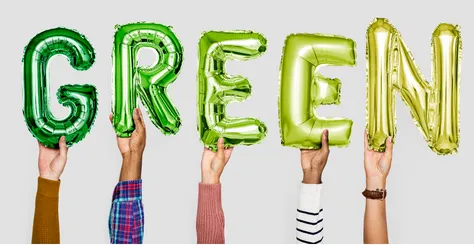European rules for “green” marketing within the EU are set to become stricter in two years. The legislation, approved this spring, has put unsubstantiated environmental claims on the blacklist of unfair commercial practices (as we wrote here). Can greenwashing already be considered an unfair commercial practice today? According to the German Federal Court of Justice, it can! Its ruling marks one of the first steps in the fight against greenwashing, which other Member States will inevitably follow with the new European legislation.
In its recent ruling, the German Federal Court of Justice addressed a key issue in “green” marketing, specifically the use of the claim “climate neutral” in advertising. The case involved a German confectionery manufacturer which advertised in the Lebensmittel Zeitung magazine its jelly candies, claiming that since 2021, all its products have been manufactured in a climate-neutral manner. The same “climate neutral” label was also placed on the product packaging.
Consumers could scan a QR code in the magazine to access a website with more detailed information about this claim. However, this claim faced criticism from the local consumer organisation (Wettbewerbszentrale), which considered it misleading and filed a lawsuit against the manufacturer.
Is the German court’s ruling the beginning of the end for greenwashing?
Dispute over the "climate neutral" label
The consumer organisation argued that the claim of climate neutrality was misleading and lacked sufficient explanation in the advertisement. They pointed out that consumers might mistakenly assume that confectionery manufacture was entirely emission-free, whereas climate neutrality was achieved only through offset measures to reduce the carbon footprint. Lower courts dismissed the lawsuit, but the Federal Court of Justice overturned their decisions, emphasizing that ecological advertising must contain clear, specific, and precise information – which, in its view, was missing in this case.
The court viewed the term “climate neutral” ambiguous, as it can mean both emission reduction and emission offsetting through other measures. If this term is used in advertising, its specific meaning in the given context must be explained to consumers – otherwise, it can be misleading.
Stricter requirements for green marketing
The Federal Court of Justice highlighted the increasing consumer interest in eco-friendly products. Many consumers consider which product or manufacturer is more environmentally friendly when making purchasing decisions, and unsubstantiated or even misleading “green” claims can significantly influence their choices. Therefore, these claims should be evaluated through the lens of unfair commercial practices.
The court reiterated its long-standing position that environmental claims in advertising must be accurate, clear, and unambiguous. As German courts have previously noted, consumers often lack detailed knowledge of the technical or scientific aspects of sustainability. Traders must therefore provide clear explanations to avoid misunderstandings or confusion of consumers.
The issue of environmental claims supported not by reducing the trader’s (or their product’s) emissions but by offsetting emissions (typically through carbon credits from forestry, etc.) is also addressed in the upcoming directive on environmental claims. This directive prefers that traders reduce their own emissions, as offset schemes carry the risk of overestimation, double counting, and thus misleading consumers. If such schemes are used, the directive requires a high level of transparency towards consumers (including information on the methodology used, the proportion of total emissions addressed through offsets, and whether these offsets relate to emission reductions or increased absorption).
Furthermore, according to the German court’s ruling, it is insufficient to rely solely on external links or QR codes to provide key information about the product’s environmental characteristics. Consumers, the court argued, should not be required to take additional steps, such as scanning a QR code, to obtain essential information. The German court is stricter in this regard than the upcoming European legislation, which allows for the supplementation of information about the product’s environmental profile in this form.
What does the german ruling mean for environmental claims?
This ruling could influence the decision-making practices of Czech courts as well, demonstrating that greenwashing can be classified as an unfair commercial practice even without a need for specific regulation. General consumer protection rules already prohibit misleading or deceptive labels and practices, whether labels on product packaging or claims in advertisements. While consumers will have to wait two more years for stricter European rules on green marketing, this ruling sends a clear signal to traders that they should be prepared to thoroughly substantiate any environmental claims, even under the current rules.
Therefore, we always recommend our clients that they assess their marketing claims, as well as the claims on the packaging of their products before they start to sell them. Our expert team is ready to assist you with this matter.









